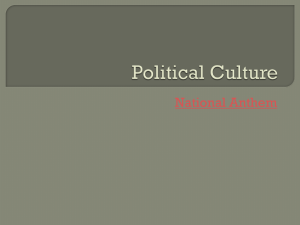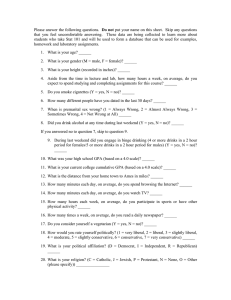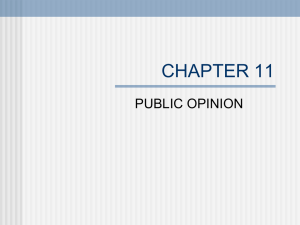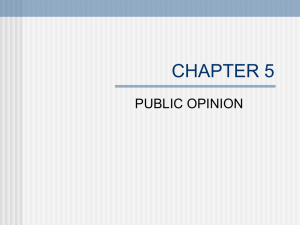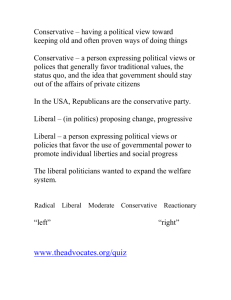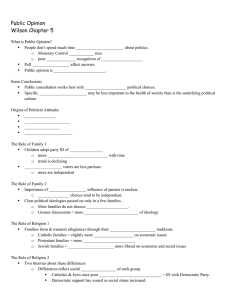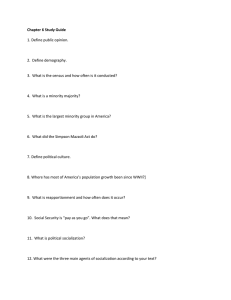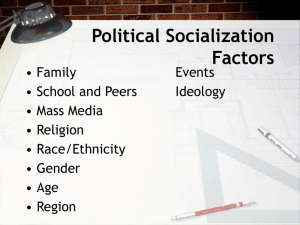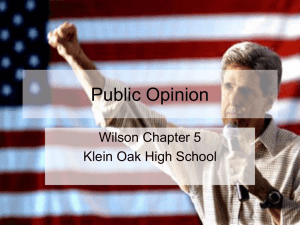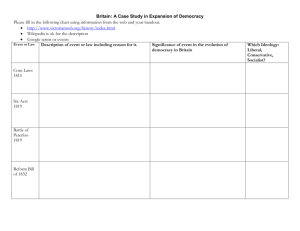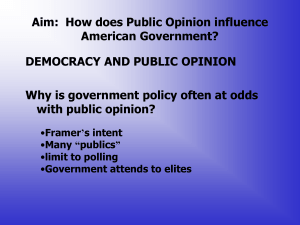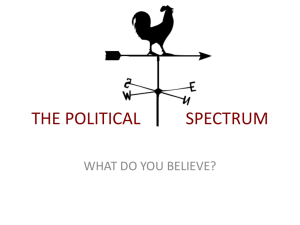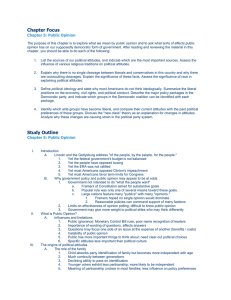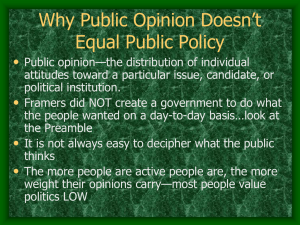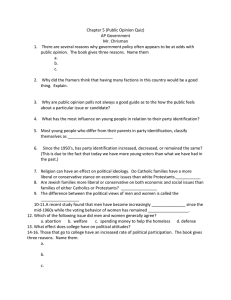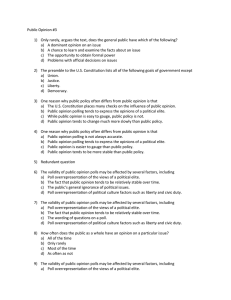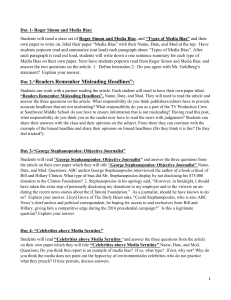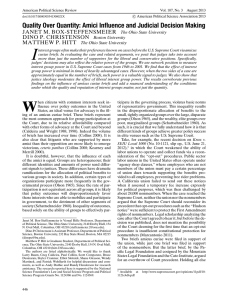File - Mrs. Fergusson's Class
advertisement
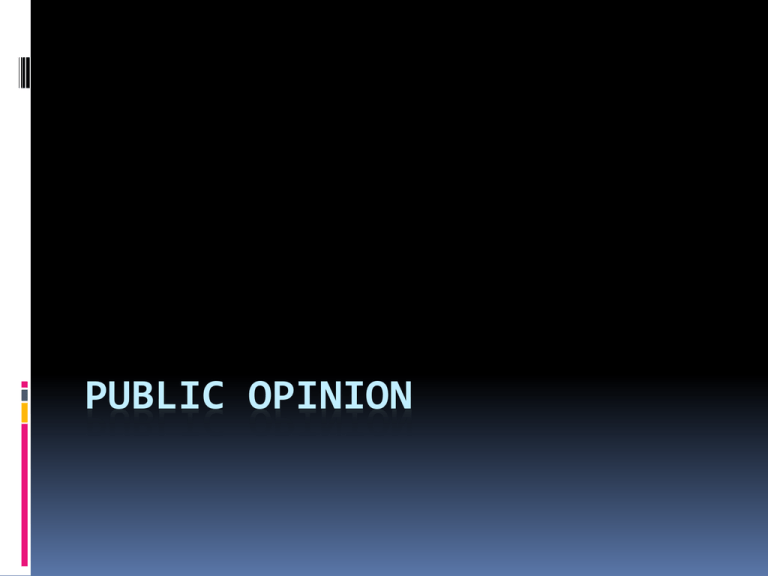
PUBLIC OPINION Public Opinion How people think or feel about particular issues. The first major academic studies of public opinion were conducted in the 1940’s. What they found… MEASURING PUBLIC OPINION Polling Poll – A survey of public opinion Straw Poll – an unofficial vote or poll indicating the trend of opinion about a candidate or issue. Sample – in polling, a small number of people drawn from & analyzed as representative of the total population to be surveyed. Sampling Error – The difference between the results of random samples taken at the same time. Exit Polls – Polls based on interviews conducted on Election Day with randomly selected voters. Scientific Polling Based on several basic rules Proper sample (based on random choice of the population) 2. Fair & clear questions 3. Sample size 4. High margin of error 1. FORMING & MEASURING PUBLIC OPINION Public Opinion Political Socialization – The process by which personal and other background traits influence one’s views about politics and government matters. There are several factors that ultimately influence a persons political attitude. A person’s political attitude can be influenced by six key factors. 1. Family 2. Gender 3. Religion 4. Education 5. Race & Ethnicity 6. Region Family Family - Families are the first to influence an individual political opinion. Individuals are likely to agree with their parents on specific issues. Equal rights for minorities, military spending, or school prayer Gender Gender - There are significant differences between men and women and their political views. Gender sensitive issues War, gun control, pornography, and alcohol (c. 1900’s). 1950’s Women tended to be Republican 1960’s Women started to move Democrat Present day women, more than men tend to vote for the Democratic party. Religion Religion - Religious beliefs and practices influence political attitudes in two areas Economic issues E.g. taxes, welfare programs, & national spending Social issues E.g. equal rights, abortion, & school prayer Education Education - Schools acquaint young people with the political system (like this class). College educated individuals tend to be more liberal in their political views College students tend to be more liberal than the rest of the general population Race & Ethnicity This has continued to evolve and change over time. Region Region – North, South, Midwest, etc. Cleavages in Public Opinion Social Class Race & Ethnicity Region POLITICAL IDEOLOGY Political Ideology A more of less consistent set of beliefs about what policies government ought to pursue. Ideologies A body of ideas or views of the world that reflect the social needs, values, and ideas of an individual or group. Liberal A person expressing political views or policies that favor the use of governmental power to promote individual liberties & social programs. Uses of the word Liberal Early 19th Century A person who favored personal and economic liberty – this is, freedom from the controls and powers of the state. FDR & the New Deal FDR used the term to refer to his political program – one that called for an active national government that would intervene in the economy, create social programs, help certain groups, etc. Conservative A person expressing political views that generally favor traditional values, that status quo, and the idea that government should stay out of the idea that government should stay out of the affairs of private citizens. Uses of the word Conservative French Revolution A person who opposed the excesses of the French Revolution and its emphasis on personal freedom and favored instead a restoration of the power of the state, the church, and the aristocracy. FDR & the New Deal Opponents of an activist national government Moderate A person opposed to extreme views; one whose political attitudes are between those of a conservative and a liberal. Radical A person with extremely liberal political views who favors rapid & widespread change to the current political & social order. Reactionary A person with extremely conservative political views who favors the widespread changes necessary to return to an earlier government or society. Political Spectrum Center Left Communist Socialist Liberal Moderate Right Conservative Reactionary Fascist It is often very difficult for many Americans to identify themselves into a single political ideology. Many Americans will find themselves agreeing with view points on either end of the political spectrum. Here are some additional terms used to describe political ideologies… Libertarians These people are conservative on economic matters and liberal on social ones. They want a small, weak government. One that has little control over either the economy or the personal lives of citizens Populists These people are liberal on economic matter and conservative on social ones. They want government that will reduce economic inequality and control business, but they also want to regulate personal conduct, lock up criminals and permit school prayer. Political Elites Persons with a disproportionate share of political power – aka an activist Political Elites are the best educated, best-informed and most politically active people nationwide with an influence on public officials. Policy debates do not always engage political opinion. Political Elites are often the first of the public to become aware of an issue. The position taken by Political Elites of all stripes are often an excellent barometer and a good way to anticipate which way political winds will be blowing in the near future.
